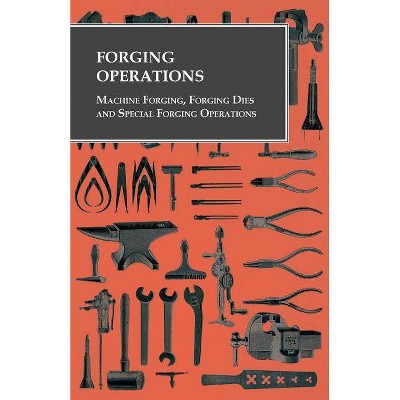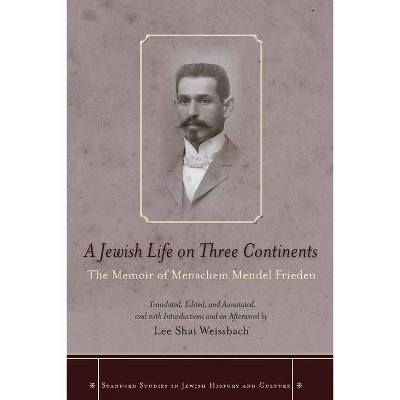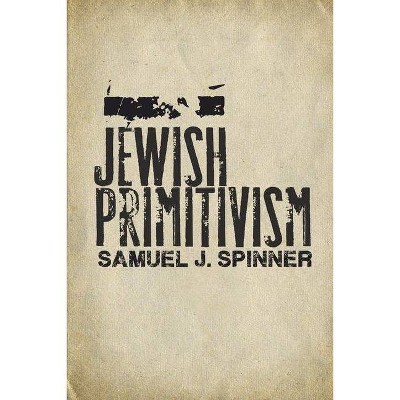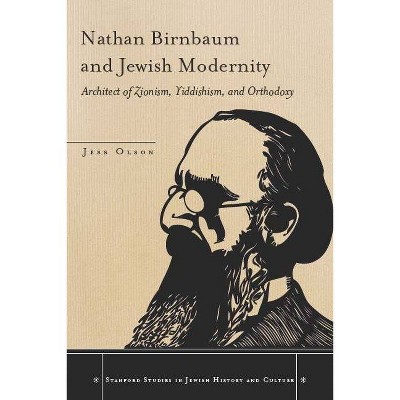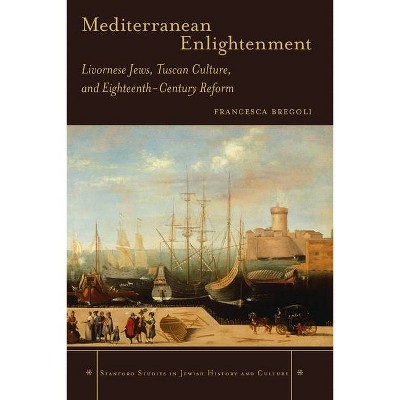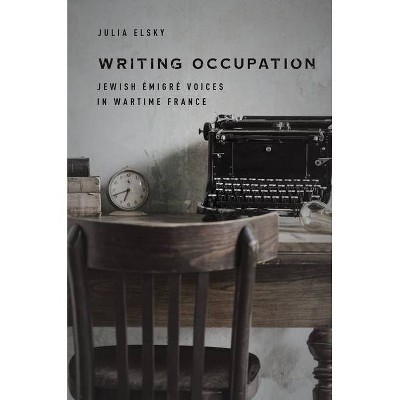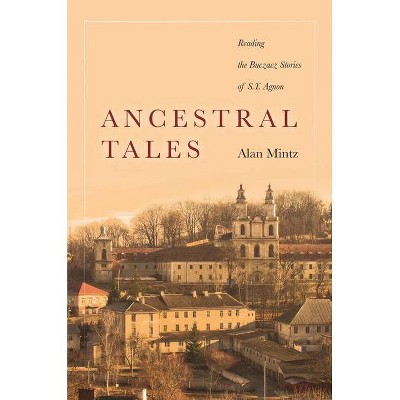Forging Ties, Forging Passports - (Stanford Studies in Jewish History and Culture) by Devi Mays (Hardcover)
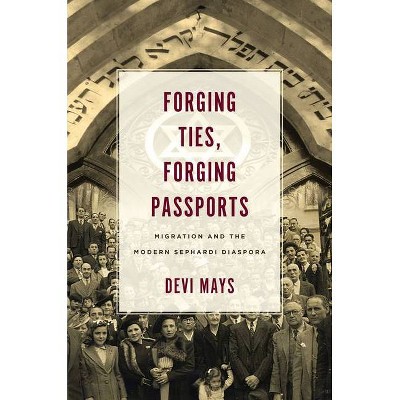
Similar Products
Products of same category from the store
AllProduct info
<p/><br></br><p><b> About the Book </b></p></br></br>"Forging Ties, Forging Passports explores the history of Ottoman Sephardic Jews who emigrated to the Americas-and especially, to Mexico-in the late nineteenth and early twentieth centuries, and the complex relationships they maintained to legal documentation during their migration and as they settled in new homes. Through the stories of individual women, men, and families who navigated these transitions, Devi Mays considers broader questions of belonging, nationality, and citizenship. In the aftermath of World War I and the Mexican Revolution, migrants navigated new layers of bureaucracy and authority, as borders and political regimes changed around them. In this period of upheaval and possibility, the meanings ascribed to nationality, class, race, and gender were in flux. Mays argues that Ottoman Sephardi migrants in Mexico were caught up in a process of defining citizenship and national belonging: they resisted classification as either Ottoman expatriates or unequivocal Mexicans by maintaining a diasporic consciousness linking them with Sephardim in formerly Ottoman lands, France, Cuba, and the United States. Drawing on these transnational commercial and family networks, Sephardic migrants maintained a geographic and social mobility that challenged the physical borders of the state and the conceptual boundaries of the nation"--<p/><br></br><p><b> Book Synopsis </b></p></br></br><p><i>Forging Ties, Forging Passports</i> is a history of migration and nation-building from the vantage point of those who lived between states. Devi Mays traces the histories of Ottoman Sephardi Jews who emigrated to the Americas-and especially to Mexico-in the late nineteenth and early twentieth centuries, and the complex relationships they maintained to legal documentation as they migrated and settled into new homes. Mays considers the shifting notions of belonging, nationality, and citizenship through the stories of individual women, men, and families who navigated these transitions in their everyday lives, as well as through the paperwork they carried. </p> <p>In the aftermath of World War I and the Mexican Revolution, migrants traversed new layers of bureaucracy and authority amid shifting political regimes as they crossed and were crossed by borders. Ottoman Sephardi migrants in Mexico resisted unequivocal classification as either Ottoman expatriates or Mexicans through their links to the Sephardi diaspora in formerly Ottoman lands, France, Cuba, and the United States. By making use of commercial and familial networks, these Sephardi migrants maintained a geographic and social mobility that challenged the physical borders of the state and the conceptual boundaries of the nation. </p><p/><br></br><p><b> Review Quotes </b></p></br></br><br>Mays's work adds a great deal to our knowledge of the mechanics of how Sephardi Jews migrated from the Mediterranean to the Americas, and her focus on hypermobility will align in a variety of ways with much scholarship on a variety of immigrant groups throughout history.--Mollie Lewis Nouwen "<i>Hispanic American Historical Review</i>"<br><br><i>Forging Ties, Forging Passports</i> is an important addition to research, bridging Jewish and Middle Eastern scholarship with the broader investigation of migration and diaspora, as the transnational turn still makes new inroads into MENA studies and Sephardic studies.--Aviad Moreno "<i>Association for Jewish Studies Review</i>"<br><br><i>Forging Ties, Forging Passports</i> powerfully demonstrates that in eras of migration restriction, mobility becomes a radical act. Examining how Ottoman Jews in Mexico grappled with their home empire's collapse, Devi Mays reclaims these migrants from the state's cartographic tyrannies and captures the wholeness of their experience. A sparkling work of social history that prompts larger questions over citizenship and its meanings.--Stacy D. Fahrenthold "University of California, Davis"<br><br>Devi Mays has written a rich account of Sephardi migrants' lives as they moved across states, adapting to and subverting the restrictions that sought to limit their mobility. <i>Forging Ties, Forging Passports</i> forces us to rethink the validity of categories like 'Sephardi, ' 'Jewish, ' and 'Mexican, ' and deepens our understanding of the complex transnational ties that shaped the lives of Jews who came to Latin America.--Adriana Brodsky "St. Mary's College of Maryland"<br><p/><br></br><p><b> About the Author </b></p></br></br><b>Devi Mays</b> is Assistant Professor of Judaic Studies at the University of Michigan.
Price History
Price Archive shows prices from various stores, lets you see history and find the cheapest. There is no actual sale on the website. For all support, inquiry and suggestion messagescommunication@pricearchive.us
